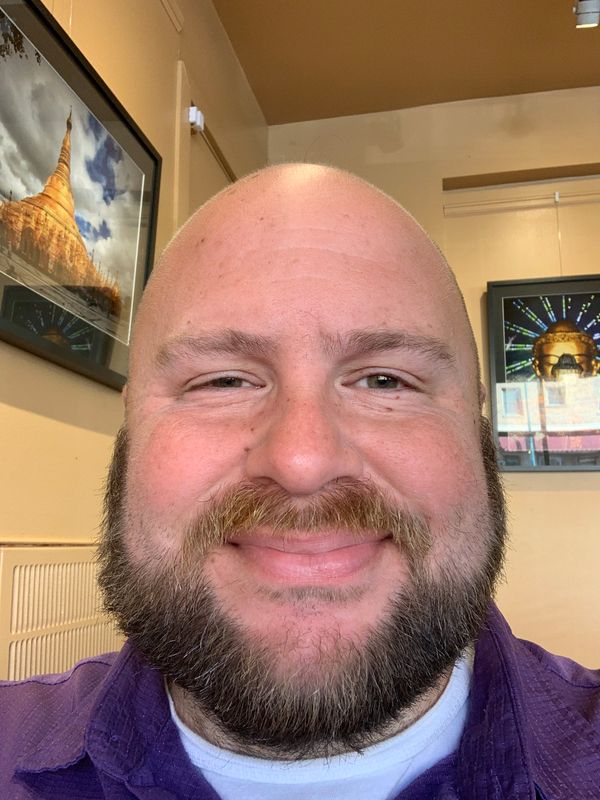VALLEJO – Eight months after a third-party report was completed investigating a ritual in which some Vallejo police officers bent the tips of their badges after shooting someone, the 150-page report is no closer to being released to the public.
Councilmember Cristina Arriola, District 6, asked Police Chief Shawny Williams about the status of the badge bending report during a special council meeting Tuesday. Williams was there to provide a status report on the department’s progress implementing 45 recommendations from the OIR Group, a firm hired in 2019 to make recommendations to improve the department.
Williams ordered the investigation days after news broke about the badge bending practice. Since the report was completed in September last year, the city attorney’s office has blocked its release, saying it was protected from disclosure because it concerned personnel matters. That decision previously caused a public spat between the attorney’s office and police department as police officials said they were waiting on City Attorney Veronica Nebb to release the report.
Tuesday, Nebb said the council would “receive a confidential memorandum with regard to that topic and make a decision as to how much of that confidential memorandum you do want released to the public. The confidential memorandum will describe the law applicable to the release of such records.”
Prior to Nebb’s response, Arriola said that she stands with the families of men killed by Vallejo police.
“I have been very, very supportive of the families and I consider them a family,” she said, adding the community and those families need to know why the report can’t be released. “If there is some legal reason why it’s zipped, it’s locked, we cannot release it, that they should at least know that and the reasons why it's zipped up, locked, and put into the vault.”
In response, City Manager Mike Malone stepped in, telling Williams not to respond as he conferred with Nebb. Following a brief discussion, Nebb said the council would get the confidential memo.
Mayor Robert McConnell asked Malone and Nebb in March to provide the council with an update on the badge bending investigation during the next council meeting. That never happened.
Former Vallejo Police Lt. Michael Kent Tribble, who retired from the department last year, testified during a criminal case in Solano County Superior Court in March that he came up with the idea for officers to bend their badges while working for the Concord Police Department in 2000. Tribble testified that he bent the badges of at least six Vallejo police officers who were involved in shootings after transferring to Vallejo in 2003.
Following revelation of the practice in the summer of 2020, Vallejo hired retired Sonoma County Sheriff Robert Giordano to conduct an investigation, which he completed last September.
Solano County Superior Court Judge Daniel J. Healy said during those criminal hearings that Giordano’s report has "no value" and is "not designed to bring some light" into the practice of badge bending.
A couple of the councilmembers, including Councilmember Hakeem Brown, at large, referenced the March 8 council meeting, which was halted for about 20 minutes as family members impacted by police violence in Vallejo showed up to demand the city fire officers who bent their badges.
The families confronted Williams, alleging he has no power to reform the department, and questioning him on why his office had yet to release the badge bending investigation report.
The council also took time to praise Williams for his efforts to reform the department.
Brown, one of Williams’ biggest supporters, said the police chief hasn’t “just talked about it, you’ve actually done the work.”
“I think you’ve had an extremely hard job, on one hand, you’ve been the most innovative police chiefs we’ve ever had, on the other hand, ‘activists’ have tried to assault you, called you every name in the book, called you a clown,” Brown said. “While I’ve also heard (the Vallejo Police Officers’ Association) calling you a number of things, as well. Across the board, you don’t get enough praise, you get a lot of criticism.”
“You stayed cool,” Vice Mayor Rozzana Verder-Aliga, District 1, told Williams, adding that he showed de-escalation in action. “I was very impressed.”
Brown said that police reform comes from policy change, not from “yelling and screaming.”
“There’s a lot of families who want to see real change here, not confrontation, not something for the cameras, not talking smack, but real change here in the community particularly in the Black community and those who are most affected by police brutality,” Brown said.
Councilmember Mina Loera-Diaz, District 3, who was absent from the meeting due to a personal matter had her comments read into the record by the city clerk. She praised Williams while asking the community to give him more time to implement reform.
“If we want to see a positive change in our police department, we must learn to work together. Accountability and transparency are taking place; perhaps not as fast as some like but much needed change is happening since Chief Williams’ arrival in our city,” Loera-Diaz said.
During his lengthy presentation, Williams touted several changes at the department, including the creation of new service areas, assigning a member of the department’s command staff to oversee the specific area in an effort to strengthen its relationship with the community.
Under the initiative, the city is divided into north, south, west, and east quadrants, with a police lieutenant responsible for focusing on developing neighborhood watches, business watches, and holding stakeholder meetings. Williams envisions meetings to be held monthly or quarterly in each of the four quadrants. Williams also told the council he wants the community to email the area commanders with issues and complaints.
Williams highlighted the department’s push to reform its use of force and de-escalation policies. He issued a special order in June 2020 banning his officers from using the controversial carotid control hold, also known as a vascular neck constraint, while attempting to subdue aggressive or resistant individuals.
Williams also ordered changes to departmental policy when it comes to body-worn cameras. “Should” was replaced with “shall” language, requiring officers to turn their cameras on when responding to a call for service or interacting with the public.
The impetus for the policy change came after the city paid $175,000 to settle an excessive force lawsuit brought against the city and two of its officers. Neither officer activated their body-worn cameras during a December 2015 incident when Officer Robert DeMarco used his metal baton to break a man’s arms in multiple places and fracture his shin.
Williams said the department is pushing to recruit more women and people of color to reflect the city’s diversity.
Malone told the council that there are currently 36 vacant sworn positions.
The council also responded to questions from Arriola, who asked why it was taking so long for the department to implement all of the OIR Group’s 45 recommendations.
Verder-Aliga said it will take “time and resources” to complete all the reforms.
“At that time, we were told that to implement the 45 recommendations, it will take more than two years, it will take more than five years because it will take resources, not just money but manpower,” she said. “I ask for the community’s patience because it’s not going to happen next year.”
Councilmember Katy Miessner, at large, said the council needs to be realistic and “there is no magic wand,” when it comes to reforming the department.
“We are dealing with some deep cultural issues that are also constrained by employment law, state law, federal law. There are so many things that just have to be done slowly,” Miessner added.
McConnell agreed, stating that it has not been easy for Williams during his time as police chief.
“You face a lot of entrenched, powerful opposition,” McConnell said, in apparent reference to the police union which has alleged that Williams released faulty use of force numbers. Williams fired VPOA President Michael Nichelini last year. Nichelini threatened a journalist and circulated the image of an early 20th century Vallejo police badge with a swastika engraved in it.
Nichelini is currently suing the city for $10 million and to get his old job back.
McConnell recognized Williams’ efforts.
“You’re doing a good job,” he said.
Before you go...
It’s expensive to produce the kind of high-quality journalism we do at the Vallejo Sun. And we rely on reader support so we can keep publishing.
If you enjoy our regular beat reporting, in-depth investigations, and deep-dive podcast episodes, chip in so we can keep doing this work and bringing you the journalism you rely on.
Click here to become a sustaining member of our newsroom.
THE VALLEJO SUN NEWSLETTER
Investigative reporting, regular updates, events and more
- government
- policing
- Vallejo
- Vallejo City Council
- Vallejo City Hall
- Shawny Williams
- Vallejo Police Department
- Cristina Arriola
- Veronica Nebb
- Mike Malone
- Robert McConnell
- Rob Giordano
- Kent Tribble
- Concord Police Department
- Hakeem Brown
- Rozzana Verder-Aliga
- Robert DeMarco
- Katy Miessner
- Vallejo Police Officers Association
- Michael Nichelini
- Mina Loera-Diaz

John Glidden
John Glidden worked as a journalist covering the city of Vallejo for more than 10 years. He left journalism in 2023 and currently works in the office of Solano County Supervisor Monica Brown.
follow me :




